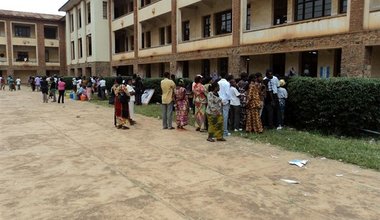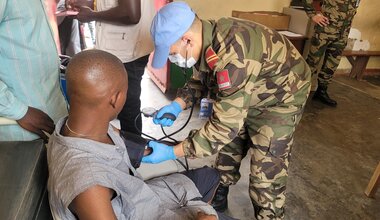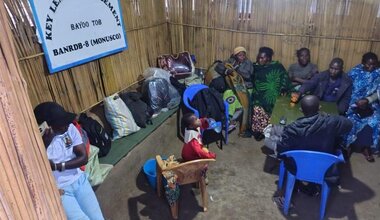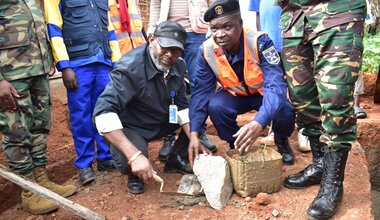Civil Society, CENI and MONUSCO Meet Over Electoral Process in Sud-Kivu

Bukavu, 16 August 2012 – A dialogue bringing together national and provincial lawmakers and other actors in the ongoing electoral process in the Democratic Republic of Congo, was held in Bukavu, capital of Sud-Kivu province, on Thursday, 16 August 2012, for an exchange of views on the recommendations made by the National Assembly for consolidating and increasing the reliability of this process.
The dialogue was organized jointly by the Sud-Kivu Civil Society Coordination Office and the Provincial Executive Secretariat of the National Independent Electoral Commission (CENI), with the logistical of the United Nations Organization Stabilization Mission in the Democratic Republic of Congo (MONUSCO).
In June this year, the National Assembly recommended, among other things, suspending the electoral calendar for provincial, urban, municipal and local elections, pending implementation of a new electoral cycle; revising the existing voting methods and eligibility requirements under the electoral law – all of which suggests a possible delay in holding provincial and local elections.
In this light, the Bukavu dialogue, which drew more than 150 participants consisting of senators, national and provincial assembly members, provincial government members, local territorial administrators, members of the CENI provincial executive secretariat, and political party representatives, looked at a possible delay of provincial and local elections in Sud-Kivu, before encouraging elected representatives of the province to approach their constituents to make them aware of the National Assembly's recommendations on the electoral process.
Addressing the participants, Mr. Robert Lukebana, CENI Provincial Executive Secretary for Sud-Kivu, renewed the CENI's readiness to work closely with civil society to ensure that provincial, municipal, urban and local elections are actually organized. He said: «Though the electoral calendar has been suspended, the electoral process is following its normal course." Against this backdrop, the meeting proceeded with a review of the currently applicable voting methods in the DRC, together with what advantages and disadvantages they offer.
For his part, Kizito Mushizi Nfundiko, Vice-President of the Caucus of Sud-Kivu national lawmakers, noted that the current legislature was still in its early stages, and that the Sud-Kivu Caucus, therefore, had "no opinion (to express) regarding the electoral process, considering that the new National Assembly continues to be guided by legislative texts passed by the previous legislature." However, he announced the intention of Sud-Kivu national lawmakers, upon their return to Kinshasa, to initiate a debate in the National Assembly on the recommendations from this social dialogue, which included a proposal to oppose any extension of the senators' term.
Tahina Andriamamonjitianasoa/ MONUSCO
 UN
UN United Nations Peacekeeping
United Nations Peacekeeping





